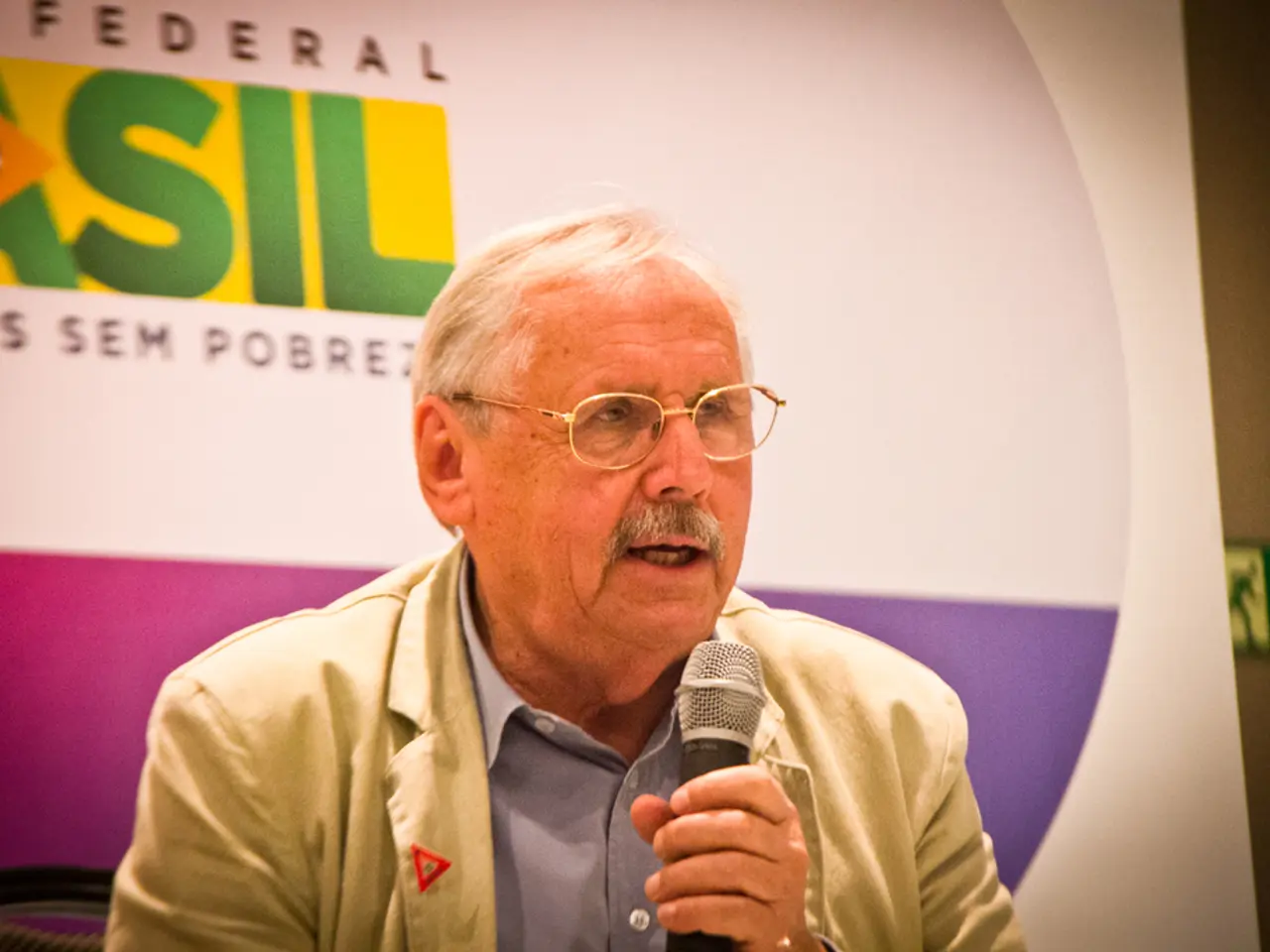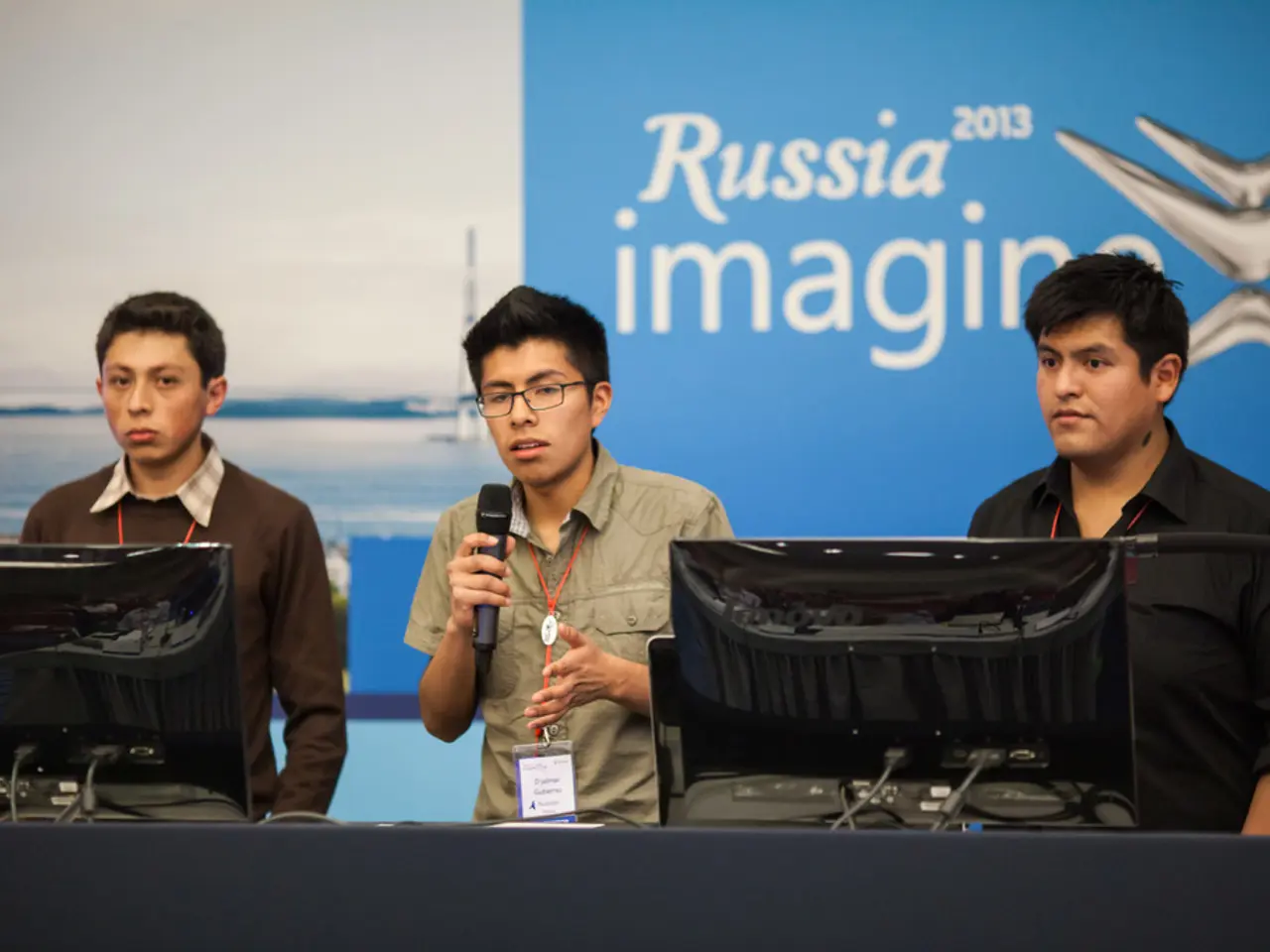Reducing Budget Allocation to Support "At-Risk" Affiliate Stations for NPR
Subtitle: NPR's Top Editor Steps Down Amidst Budget Reductions and Uncertainty
In a time of significant change, Edith Chapin, the top editor and acting chief content officer at NPR, has announced her departure at the end of the year. This marks another major change ahead of NPR's next chapter [1]. Chapin joined NPR from CNN in 2012 as chief international editor.
Meanwhile, the public media landscape is facing challenges of its own. President Trump's recission package has caused industry observers to express concern about its impact on rural, indigenous, and community radio stations. These vulnerable stations rely heavily on federal funding, with some depending on it for over 70 percent of their budgets [2].
The Corporation of Public Broadcasting (CPB) had $1.1 billion in pre-allocated funds clawed back by Congress. As a result, the CPB is winding down operations, with most staff positions ending by September 2025 and a small transition team remaining until January 2026 to manage closeout tasks [1][2][3].
This development will have a critical impact on many local stations, especially those in rural and indigenous areas. Without CPB’s support, these stations face significant budget shortfalls that threaten their ability to provide local news, emergency alerts, cultural programming, and public media services to their communities [1][3].
Local public stations that rely on CPB funding as a major part of their budgets will face severe financial strain. Examples include KCUW in Pendleton, Oregon; KUHB in St. Paul, Alaska; and WVLS in Monterey, Virginia, where CPB funding accounts for over 90% of revenue [3].
Since local newspapers have declined, many rural and indigenous communities depend on public radio for their sole source of local news and emergency information, which risks being lost [3].
CPB stated it intends to help local stations plan for smaller budgets during the transition, but the complete shutdown of CPB operations means loss of federal stewardship and coordinated funding support for these stations [1][4].
In response, NPR President/CEO Katherine Maher decided to reduce the NPR operating budget to use as a "fee relief" for affected stations. The NPR board of directors also decided to use the reduced budget to support member stations most affected by the rescission of federal funding [5].
Moreover, Maher suggested a shift in conversation to individual contributions and private donations to support local reporting [5]. Rima Dael, CEO of the National Federation of Community Broadcasters, expressed concern about the impact of defunding public media on small towns and Tribal communities [2].
The rescission of federal funding will cost public radio stations an estimated $350 million annually over the next two years [2]. NPR is cutting its budget by about $8 million to support member stations affected by the rescission of federal funding [5].
As Chapin prepares to leave NPR, the future of public media in underserved areas hangs in the balance. The loss of federal funding could lead to the closure of 79 public radio and 33 TV stations in 34 states and territories [2]. This raises concerns about the long-term viability of public broadcasting in rural, indigenous, and community contexts essential for cultural connection and civic discourse [1][4].
In a related story, Dael wrote a commentary expressing concern about the potential dismantling of public media infrastructure [2]. Trusty, in another commentary, said, "This is not the end of public media" [2].
References: [1] https://current.org/2021/05/cpb-clawback-leaves-public-radio-stations-in-limbo/ [2] https://current.org/2021/08/cpb-rescission-impacts-public-radio-stations/ [3] https://www.npr.org/2021/08/12/1027650264/why-public-radio-stations-in-rural-and-indigenous-communities-are-facing-a-crisis [4] https://www.npr.org/2021/05/12/1001113839/what-the-cpb-funding-clawback-means-for-public-media [5] https://www.npr.org/2021/08/18/1029072415/npr-will-cut-its-budget-by-8-million-to-help-member-stations-affected-by-federal-f
In light of NPR's budget reductions and uncertainty, the top editor, Edith Chapin, is stepping down. This decision, however, comes in a larger context where public media, especially rural and indigenous stations, are facing significant challenges due to a loss of federal funding. These stations, often relying on federal funds for over 70% of their budgets, now face severe financial strain, potentially impacting their capacity to provide local news, emergency alerts, cultural programming, and other public services. To mitigate this, NPR is reducing its operating budget to offer "fee relief" to affected stations and encouraging individual contributions and private donations for local reporting.




